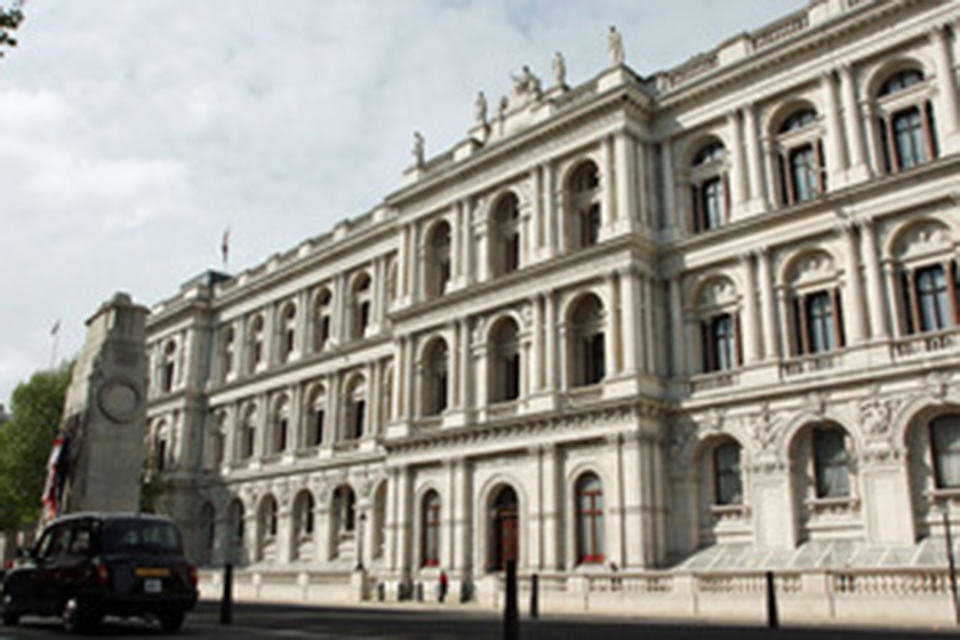UK’s position on the Golan Heights has not changed
Statement by Ambassador Karen Pierce, UK Permanent Representative to UN, at the Security Council Briefing on UNDOF/Golan Heights

Thank you Madam President and thank you to the two Under-Secretaries-General for your helpful briefings.
Madam President, I’d like to structure my remarks around six headings:
- The UK position on the Golan;
- UN Security Council Resolutions;
- What this means for the international order;
- Israel’s right to security;
- The Middle East Peace Process;
- and UNDOF.
On the first point, the United Kingdom’s position has not changed Madam President. It is our position that the Golan Heights is territory occupied by Israel.
The turbulent history of the region is of course well-known. Following the 1967 Six-Day War, Israel took control of the Golan, including the disputed Sheba’a Farms, and in 1981 took the decision to annex the territory. The United Kingdom did not recognise that annexation and nor do we today.
Annexation of territory by force is prohibited under international law, including the UN Charter. In addition, under the Law of State Responsibility, states are obliged not recognise the annexation of territory as a result of force.
Turning to the UN Security Council Resolutions; it is important, Madam President, that we uphold the relevant UN Security Resolutions. Security Council Resolution 242 - which the then British delegation had the honour to pen - was adopted unanimously by the UN Security Council on November 22, 1967. British sponsored, it called on all parties to end territorial claims, acknowledge the sovereignty, territorial integrity and political independence of every state in the area and for “the withdrawal of Israeli armed forces from territories occupied in the recent conflict”.
We recall, Madame President, that Security Council Resolution 497, adopted unanimously on 17 December 1981, decided that the Israeli Golan Heights Law, which effectively annexed the Golan Heights, is “null and void and without international legal effect” and it further demanded that Israel rescind its action.
The decision by the United States to recognise Israeli sovereignty over the Golan Heights is in contravention of UN Security Council Resolution 497.
In terms of international order, Madame President, the United Kingdom firmly believes that the rules based international system has increased states’ ability to resolve their differences peacefully, and it has provided a framework for the greatest sustained rise in prosperity which mankind has seen. This is why the United Kingdom thinks we should work hard with our international partners to nurture and protect these rules.
Madame President, the right to self defence is inherent. Israel has a right to defend itself. She has a right to security and her people has a right to live in safety. We do not wish to diminish Israel’s genuine security concerns. We fully support her right to defend herself and urge, the Asad Regime, Iran and Hizbollah to refrain from actions which will only lead to increased instability in the region as well as put civilians at risk. As the US Representative has noted, Syria has allowed the use of its territory to launch missiles at Israel and at Israeli civilians. This is not acceptable. But at the same time Madame President, we emphasise importance of adhering to rules-based international system and abiding by UNSCRs which are designed to protect that system. And this is true irrespective of the importance of the Golan is to Israel’s security, or of the lack of progress in peace talks.
Turning to the peace talks; Resolution 242 enshrined the concept of land for peace and this has proven successful in ending the conflict between Israel, Jordan and Egypt. We believe it remains a basic principle for resolving peace between Israel, the Palestinians and other neighbours.
I want to emphasise, Madame President, that we strongly welcome the US’s efforts on the Middle East Peace Process and we encourage the US Administration to bring forward detailed proposals for a viable Israeli-Palestinian peace agreement that addresses the legitimate concerns of both parties. We continue to believe that the best way to achieve this is through substantive peace talks between the parties leading to a two-state solution.
Finally, Madame President, turning to UNDOF; the United Kingdom expresses its strong support for UNDOF. It should be the only armed forces active in the area of separation. The presence and activity of any other armed forces, armed personnel and/or military equipment of any kind in the area of separation contravenes the Disengagement of Forces Agreement and Security Council Resolution 2394 of 2017. The United Kingdom remains committed to supporting UNDOF’s mandate and we look forward to engaging in discussions regarding its renewal in June.
Thank you Madam President.